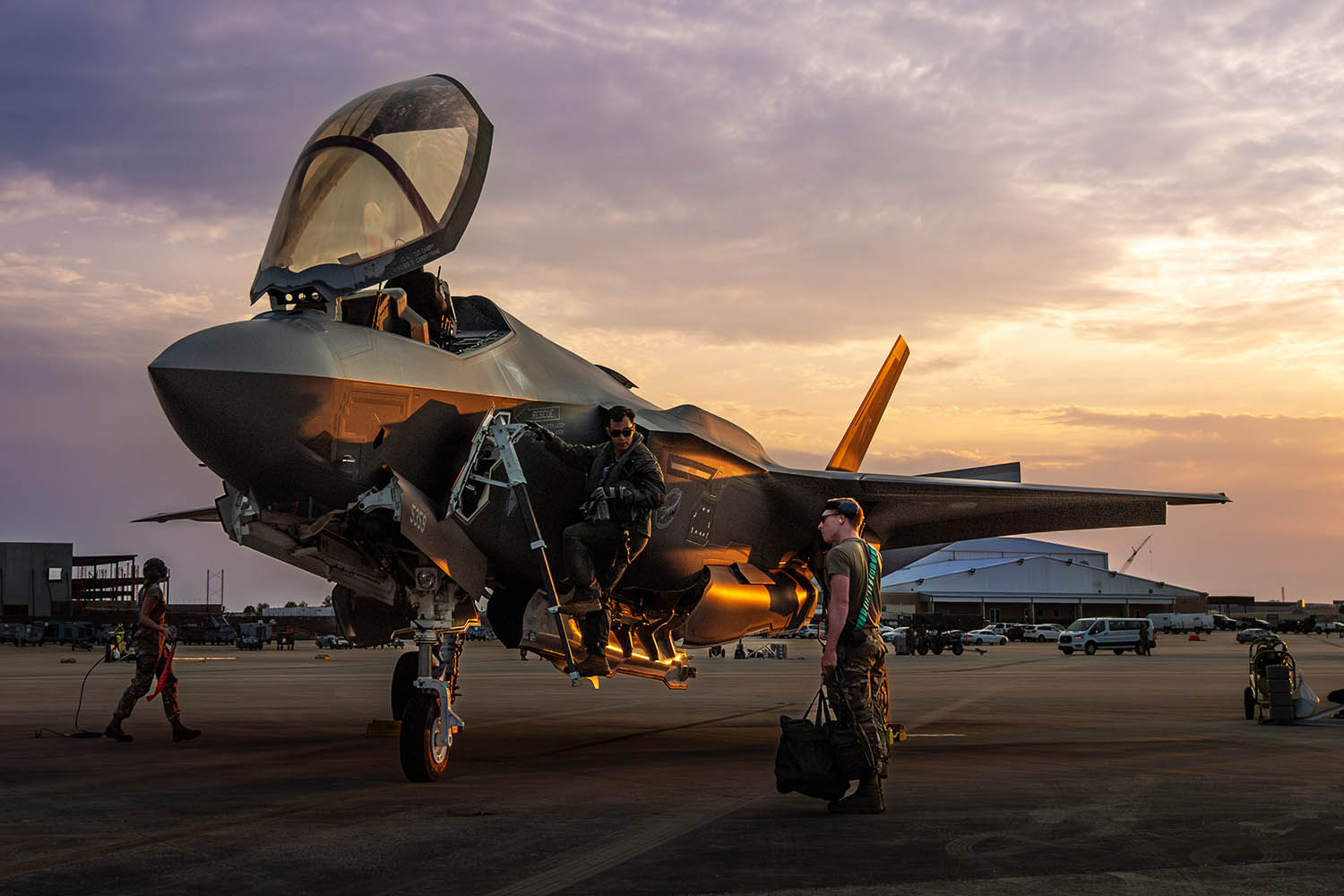Omaha, Nebraska, is an almost anonymous city of half a million people deep in the American Midwest. It’s clean, quiet and crime is below the national average. It doesn’t get into the news much, except perhaps once a year when its most famous resident, Warren Buffett, holds the AGM for his hugely successful investment firm.
It’s also the place where they plan the end of the world.
Omaha is home to the US Strategic Command, the arm of the Pentagon responsible for thinking through and perhaps executing nuclear war.
If a third world war did break out in Europe, the American general in charge of Nato’s military machine would turn to StratCom for the nuclear war plan. It’s been this way for decades now, but its role had faded into obscurity since the fall of the Berlin Wall. Not any more.
This week, Sir Keir Starmer announced that the UK would buy 12 American F-35A fighter jets capable of carrying US nuclear bombs and dropping them as part of any Nato nuclear campaign. To hear Sir Keir tell it, this is a huge change. So it might come as something of a surprise to learn that Germany and Italy have been doing exactly this job for decades, with the same American weapons.
Since the 1960s, the US has wanted to ensure that European hands are dipped in the blood of any decision to use nuclear weapons defending Europe. They did not want to be accused of laying waste to our continent alone. At the same time, the US has never been of a mind to hand out nuclear weapons left, right and centre for Europeans to use as they please.
The solution has been a “dual key” approach. An American general has overall command of Nato forces, US generals in Omaha decide what nuclear weapons should be used on which targets, and if it came to it in all-out war, America would authorise and then order the use of these weapons, but European allies would also consent. Then American and European pilots would fly their doomsday missions.
It’s not often noted in the UK, but the Royal Navy’s Trident system is also part of this plan. We think of Trident as a UK national deterrent but going back to the original purchase of the predecessor Polaris system, the first call on UK Trident is for the Nato war plan. US StratCom generals come and inspect UK Trident submarines regularly, to make sure they are up to snuff. Only if the UK was left alone in national extremis, would Trident become a UK-only weapon.
‘Acting as the ragged-trousered philanthropist to replicate the work of others seems an extravagant gesture’
‘Acting as the ragged-trousered philanthropist to replicate the work of others seems an extravagant gesture’
So, what should we make of this week’s announcement? Italy and Germany already carry American B61 nuclear bombs on their ageing Tornado aircraft, and Germany has already agreed to buy F-35A jets to replace their Tornados as nuclear bombers. The US itself has a variety of aircraft capable of carrying the B61, and about 150 bombs are stored, under strict US control, in Europe at bases in Belgium, Germany, Italy, the Netherlands and Turkey.
From a Nato perspective then, it’s not immediately obvious what the RAF joining this party adds. The job, as gruesome and unimaginable as it is, is already well covered by other Nato members, and has been for a long time.
Newsletters
Choose the newsletters you want to receive
View more
For information about how The Observer protects your data, read our Privacy Policy
Perhaps, as the PM seemed to imply, buying these jets and acting as a delivery service for Armageddon increases the UK’s own nuclear arsenal and options? Well, not really. These B61 bombs are very firmly under US control and would only ever be used as and when the US wanted. The UK will have no substantive say in this plan. Only our consent to the execution of a US plan is required.
If money were no object, we could view the £2bn price tag for doing this as a Thank You to Uncle Sam. The UK is, in effect, picking up part of the cost of a mission that would otherwise fall to the US. In a world that wants to please President Trump, it’s easy to see how it plays well to buy aircraft primarily built in Texas.
But money is an object, and UK defence is currently threadbare in many areas. Acting as the ragged-trousered philanthropist to replicate the work of others seems an extravagant gesture today. There are many more pressing ways we could better use that money to defend the UK.
For example, if the UK came under the same kind of missile attack that Israel has absorbed over the past two weeks, Britain would fare much less well. The UK does not have the multi-layered missile defence screen that Israel uses. We badly need to invest in this area.
We also lack sufficient weapons on our ships and aircraft to repel any Russian conventional attack. Actual weapons stocks are classified, but it would not be a shock to learn that, in an effort to keep up the number of highly visible ships and fighter jets, we might have skimped on the weapons stocks these platforms need. Replenishing these weapons must be a very high priority.
This is particularly true since the UK has, quite properly, provided much of its existing weapons stocks to Ukraine, to allow it to keep fighting against the Russian invasion. Our supplies of weapons such as Storm Shadow cruise missiles, anti-tank weapons and artillery are now perilously low.
In an ideal world, we would do all these things and many more. But governing is not about being able to do everything, everywhere, all at once. It’s about choosing between competing goods in a world that’s always short of money. To govern is to choose.
This choice feels like that of an image conscious homeowner, who keeps a flash car on the drive to keep up with the neighbours and draw attention away from the peeling paint and damp on the bathroom walls.
Sir Bernard Gray was chief of defence materiel and UK national armaments director from 2011-2015
Photograph by Staff Sgt. Jana Somero/US Air Force

